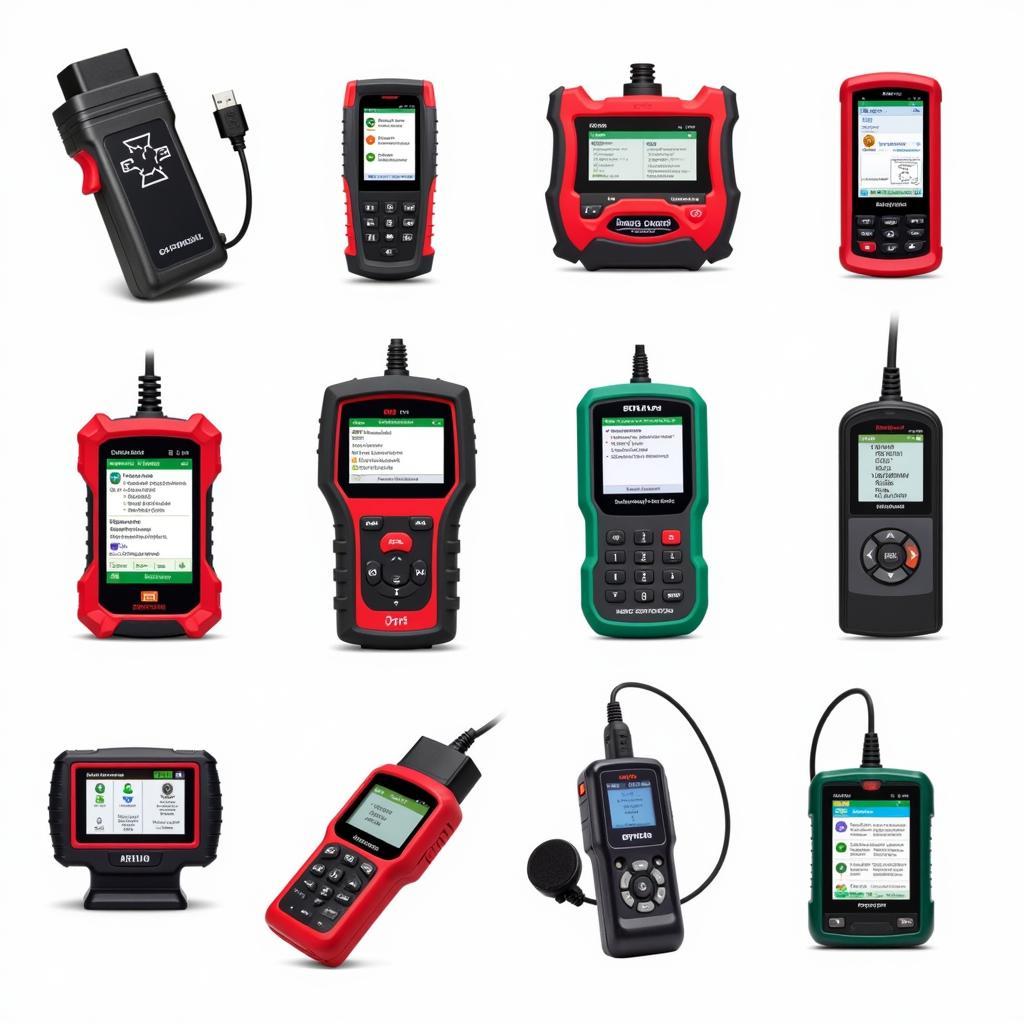A car diagnostic, in simple terms, is like a health check for your vehicle. It involves using a specialized tool, a car diagnostic scanner, to communicate with your car’s computer system. This system, also known as the Engine Control Unit (ECU), continuously monitors various sensors placed throughout your vehicle. These sensors collect data on everything from engine performance and emissions to airbag status and braking systems.
Why are Car Diagnostics Important?
Imagine this: your car starts acting up – maybe the engine light is on, or your fuel efficiency suddenly drops. Instead of playing a guessing game with potential issues, a car diagnostic scan can pinpoint the root cause. It reads the diagnostic trouble codes (DTCs) stored in your car’s ECU, which are essentially error codes that indicate a specific problem area. This allows you to address the problem directly, saving you time, money, and potential headaches down the road.
 Mechanic Analyzing Diagnostic Results
Mechanic Analyzing Diagnostic Results
What Does a Diagnostic Test Tell You?
Car diagnostic tests can reveal a wide range of issues, from minor glitches to major malfunctions. Here are some key areas they cover:
- Engine Performance: This includes issues like misfires, fuel injection problems, and oxygen sensor malfunctions.
- Transmission System: A diagnostic test can identify problems with your gear shifting, clutch, and other transmission components.
- Emissions System: This checks for issues with your catalytic converter, oxygen sensors, and other components responsible for controlling your car’s emissions.
- Braking System: This covers problems with your ABS system, brake fluid levels, and brake pad wear.
- Airbag System: A diagnostic test can check the functionality of your airbags and seatbelt sensors.
- Other Electronic Systems: This can include problems with your car’s lights, power windows, and other electronic accessories.
Types of Car Diagnostic Scanners
Car diagnostic scanners have come a long way from basic code readers. Now, you have a variety of options to choose from, each with different capabilities and price points:
- Basic Code Readers: These affordable devices can read and clear basic DTCs, making them suitable for DIY enthusiasts.
- OBD-II Scanners: These offer more advanced features than basic code readers, allowing you to view live data streams from your car’s sensors and perform some special functions. You can learn more about these on our “can obd ii car engine diagnostic code scanner” page.
- Professional Scanners: Used by mechanics and dealerships, these high-end tools offer comprehensive diagnostic capabilities, including advanced programming and coding functions.
For a more in-depth understanding of using a specific diagnostic tool, check out our guide on “how to use v310 car diagnostic tool“.
 Types of Car Diagnostic Scanners
Types of Car Diagnostic Scanners
When Should You Get a Car Diagnostic?
While modern cars often alert you with a dashboard warning light, you don’t always have to wait for a warning sign. It’s a good practice to get a diagnostic test:
- When buying a used car: This helps you identify any hidden problems before making a purchase.
- As part of regular car maintenance: Just like an oil change, a periodic diagnostic scan can catch minor issues before they escalate.
- If your car is experiencing performance problems: This includes issues like engine misfires, decreased fuel efficiency, or strange noises.
You might wonder, ” what does a diagnostic car test carry out?” Our detailed guide explores this further.
Can You Request Car Diagnostic Results?
Yes, you have the right to request a copy of your car diagnostic results. Knowing ” can i request car diagnostics results” empowers you to make informed decisions about your car repairs.
Choosing the Right Diagnostic Tool
Selecting the right car diagnostic tool depends on your needs and technical expertise. If you’re a DIY enthusiast, a basic code reader or an OBD-II scanner might suffice. However, professional mechanics often require more sophisticated scanners with advanced functionalities.
If you’re in the UK and wondering ” what’s the best car diagnostic tool uk” we’ve got you covered with a comprehensive guide to help you choose the right one.
Conclusion
Understanding “What Is A Diagnostic On A Car” is crucial in today’s technologically advanced automotive landscape. Car diagnostics provide valuable insights into your vehicle’s health, enabling you to address problems proactively and keep your car running smoothly. Whether you choose to visit a mechanic or delve into the world of DIY car maintenance, a car diagnostic test is an essential tool for every car owner.
FAQs
1. How much does a car diagnostic cost?
The cost can range from free at some auto parts stores to around $100-$200 at dealerships or independent mechanics.
2. Can I do a car diagnostic myself?
Yes, with a basic code reader or OBD-II scanner and some basic knowledge, you can perform simple diagnostics at home.
3. Will a car diagnostic drain my car battery?
No, a car diagnostic test only uses a small amount of battery power.
4. Can a car diagnostic fix my car?
No, a diagnostic test only identifies problems. It doesn’t fix them.
5. How often should I get a car diagnostic?
It’s a good idea to get a diagnostic test at least once a year or whenever you experience car trouble.
Need assistance with car diagnostics or want expert advice on choosing the right tools? Contact us via WhatsApp: +1(641)206-8880 or email us at [email protected]. Our team is available 24/7 to provide expert support.

Leave a Reply